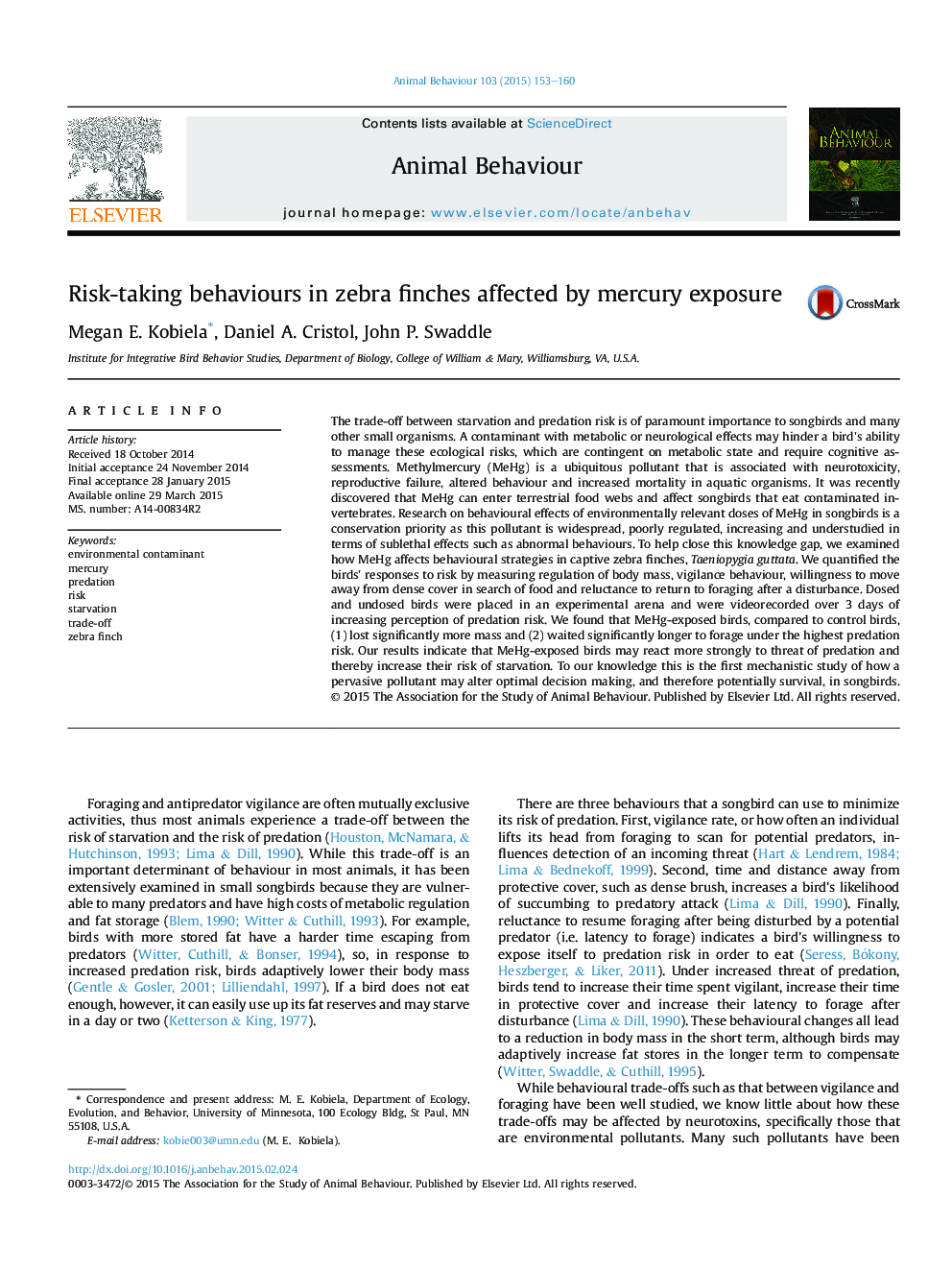| Article ID | Journal | Published Year | Pages | File Type |
|---|---|---|---|---|
| 8489943 | Animal Behaviour | 2015 | 8 Pages |
Abstract
The trade-off between starvation and predation risk is of paramount importance to songbirds and many other small organisms. A contaminant with metabolic or neurological effects may hinder a bird's ability to manage these ecological risks, which are contingent on metabolic state and require cognitive assessments. Methylmercury (MeHg) is a ubiquitous pollutant that is associated with neurotoxicity, reproductive failure, altered behaviour and increased mortality in aquatic organisms. It was recently discovered that MeHg can enter terrestrial food webs and affect songbirds that eat contaminated invertebrates. Research on behavioural effects of environmentally relevant doses of MeHg in songbirds is a conservation priority as this pollutant is widespread, poorly regulated, increasing and understudied in terms of sublethal effects such as abnormal behaviours. To help close this knowledge gap, we examined how MeHg affects behavioural strategies in captive zebra finches, Taeniopygia guttata. We quantified the birds' responses to risk by measuring regulation of body mass, vigilance behaviour, willingness to move away from dense cover in search of food and reluctance to return to foraging after a disturbance. Dosed and undosed birds were placed in an experimental arena and were videorecorded over 3 days of increasing perception of predation risk. We found that MeHg-exposed birds, compared to control birds, (1) lost significantly more mass and (2) waited significantly longer to forage under the highest predation risk. Our results indicate that MeHg-exposed birds may react more strongly to threat of predation and thereby increase their risk of starvation. To our knowledge this is the first mechanistic study of how a pervasive pollutant may alter optimal decision making, and therefore potentially survival, in songbirds.
Related Topics
Life Sciences
Agricultural and Biological Sciences
Animal Science and Zoology
Authors
Megan E. Kobiela, Daniel A. Cristol, John P. Swaddle,
